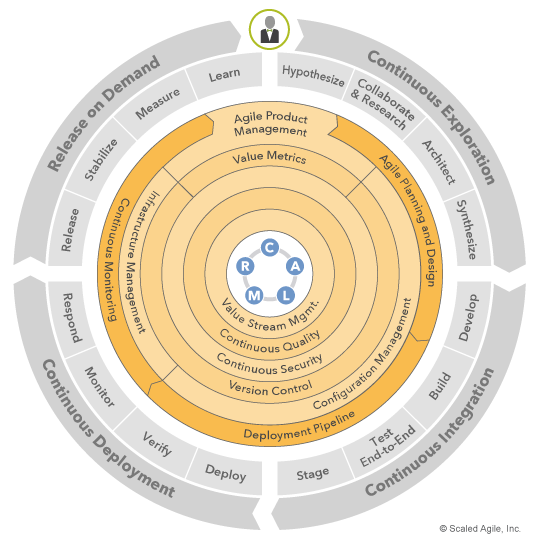The Importance of DevOps within Modern Software Development Teams

In today’s fast-paced business environment, organizations are constantly looking for ways to improve their software development processes to stay competitive. One approach that has gained significant traction in recent years is the implementation of DevOps practices within software development teams. DevOps, a combination of the words “development” and “operations,” is a set of practices that aim to bring development and operations teams closer together, with the goal of creating a more efficient and effective software development process.
One of the key benefits of implementing DevOps practices is the increased speed and agility of software development. DevOps practices such as continuous integration and continuous delivery (CI/CD) allow for faster and more frequent releases of software, which can help organizations stay ahead of their competitors. Additionally, DevOps practices also promote a culture of collaboration and communication, which can lead to better communication and alignment between different teams, reducing the risk of delays and errors in the software development process.
Another key benefit of DevOps practices is improved quality and reliability of software. DevOps practices such as automated testing and monitoring can help ensure that software is thoroughly tested and is of high quality, reducing the risk of defects and errors in the final product. This can lead to improved customer satisfaction and reduce the risk of costly downtime.
DevOps practices also have a positive impact on the bottom line of an organization. By implementing DevOps practices, organizations can reduce costs and increase efficiency in the software development process. This can lead to faster time-to-market for new products and services, which can give organizations a competitive advantage. Additionally, DevOps practices can also help organizations reduce downtime and improve the reliability of their systems, which can lead to cost savings.
DevOps practices are essential for modern software development teams. By implementing DevOps practices, organizations can improve the speed, quality, and reliability of their software development process. This can lead to improved customer satisfaction, faster time-to-market for new products and services, and cost savings. Organizations that want to stay competitive in today’s fast-paced business environment should seriously consider implementing DevOps practices within their software development teams.
One framework that has been widely adopted to implement DevOps practices is the Scaled Agile Framework (SAFe). SAFe contains a set of agile methodologies for coordinating and scaling development efforts across multiple teams. It promotes collaboration and communication between development, operations, and business teams within an organization, which is essential for successful DevOps implementations.
Tobias is a certified DevOps practitioner for SAFe. A Certified SAFe DevOps Practitioner (SDP) is responsible for improving the complete flow of value through a Continuous Delivery Pipeline from idea to operational solution. Key areas of responsibility include participating in Continuous Exploration, Continuous Integration, Continuous Deployment, Release-on-Demand, continuous testing, continuous security, and building a culture of shared responsibility.
Contact us for more information on how we can assist your DevOps transformation.


